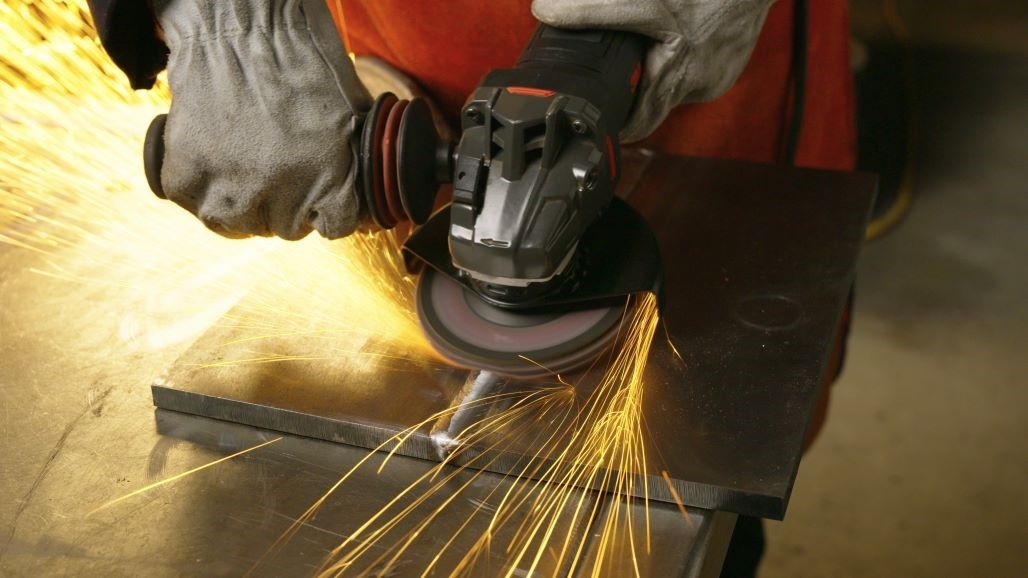What You Need to Know
Mennie is an automotive supplier that was having issues with long cycle times, excessive deburring and inconsistent tool life.
From tool procurement via supply and implementation, to reconditioning, Walter's Multiply program aims at maximum productivity and the opportunity to focus on core competencies.
Customized single source solutions are developed through Multiply, without any unnecessary interfaces or service components that can strain a customer's time, patience, and budget.
Walter Multiply from Walter brought its expertise to bear on Mennie Machine's most difficult machining problem. The resulting improvements were many and wide ranging.
Knowledge is power, the saying goes, but after its experience with Walter, Mennie Machine Co. might add knowledge is also speed, productivity and profit. Mennie is a Tier One automotive supplier that also services customers in the computer, heavy equipment and other industries from its 250,000 sq. ft. production facility. Mennie, however, was having difficulties meeting its production and profitability goals on a fuel pump housing head, cast from 1722 steel, that it produced for one of its major customers, a leading engine manufacturer.
According to Jake Cimei, purchasing manager for Mennie, the chief issues with the part included long cycle time, excessive deburring, inconsistent tool life and varying costs. Mennie had tried to address these issues in house but without the success they envisioned.
"This customer represents a large part of our business so we couldn't afford to fail with this part," notes Cimei.
It was at this point that the local Walter channel partner stepped forward. Determined to help its client address these problems, they turned to their supplier Walter (Waukesha, WI). Regarding the Walter Multiply program.
Walter Multiply Jamie Boettcher, Walter District Sales Manager, explains. "With Walter Multiply, instead of conventional tool optimization analysis, we put the entire process under the microscope. From tool procurement via supply and implementation, to reconditioning, Multiply aims at maximum productivity and the opportunity to focus on core competencies. We combine their production expertise with our knowledge of Walter's tools and our machining expertise to provide a continuous and sustainable boost in productivity.
"As part of this," Boettcher continues, "we develop customized single source solutions, without any unnecessary interfaces or service components that can strain a customer's time, patience, and budget. Walter Multiply is their point of contact to guide them through the entire process; helping and supporting with a collaborative, systematic and targeted approach to enable them to get the most out of their production process."
Muff Tanriverdi, president of Walter, along with executives from the channel partner met with Mennie leadership in December 2015, to explain the Walter Multiply process. Mennie proved eager to put their troublesome fuel pump housing head process under the microscope, and come up with solutions that would increase their productivity, reduce their need for deburring, implement the latest tooling and practices, process the entire part at one time, and, most of all, find a way to do all this while saving the company money. In January 2016, the process began. Walter Multiply was brought to bear on two lines that produced variants of the fuel pump housing head, one line, which produced 45,000 parts per year, the other produced 57,000 parts per year.
Thorough evaluation Brian Baker, senior application engineer with Walter Multiply, describes how it started. "We camped out at their machines for three days and watched everything about how they processed the part -- fixturing, speeds, cutting paths, chip formation, you name it. We also studied the available reports and analyzed their CNC programs, their chips, their used tools, their machine cut/cycle times, and, from a global perspective, we analyzed the entire machining process as well. Then we came back to our shop in Waukesha and recreated the process.
"After the evaluation," Baker continues, "the project team decided to pursue a full productivity solutions package including programming, and complete part reprocessing with an improved tooling package and new cutting parameters. We also proposed to provide on-site NC programming assistance and conduct on-site run-off." The team was given the green light to implement the remaining package components. "We were impressed by the package they presented, by what they said they could do, and by their dedication to the process" says Mennie's Jake Cimei. "We put together a team here at Mennie to work with Walter on this."
Powerful solution Project implementation began in early 2016. Speaking of the initial runoff, Cimei recalls that "We quickly knew after the first couple of hundred pieces were run that the project was a success." The implementation started with rough milling. The rough face milling parameters were overhauled with testing-determined, optimized tool geometry, the latest carbide and insert coating technology from Walter was employed and the desired chip formation was achieved. In addition, improved tool paths to eliminate inefficient motions, reducing cycle times and improving tool life, were instituted. Because of these actions cutting time for rough face milling was reduced from 52.6 seconds to 22.4 seconds.
Finish face milling was next to be addressed. New cutting parameters were instituted, parameters determined to provide the fastest cutting without sacrificing surface quality. Tooling was switched to the latest carbide and insert coating technology from Walter. Because of these actions cutting time for finish face milling was reduced from 174.0 seconds to 152.0 seconds.
"The results from the thread milling changes were truly dramatic," notes Cimei. The latest thread milling technology from Walter was adopted to improve cutting parameters. To improve tool paths to eliminate inefficient motion and further reduce cycle time the Walter Multiply team used Walter GPS. This is a computerized programming tool that makes suggestions adapted to the user's specific conditions. As a result of these changes cutting time for this operation was reduced from 163.8 seconds to 15.2.
For the drilling operations, new tool geometry and cutting parameters were introduced, along with a switch to the Walter Titex deep hole drilling technology. Importantly, this gave the Walter Multiply team the chance to directly address Mennie's goal of reducing excessive deburring, a goal that had eluded previous attempts to attain. They did this by a process of eliminating pecking cycles (which also increased tool life) and implementing proper feed reduction methods at cross holes (that is, reduced speed at breakout) to reduce burrs.
Because of these efforts, drilling time went from 14.2 seconds down to 6.4, and the need for excessive deburring was eliminated.
"We worked with Mennie's quality and process engineers to re-program the entire part without compromising quality or increasing the frequency of inspections, says Baker, summing up. "We applied best practices to improve tool life and part quality. In addition, we added roughing operations, pre-drills, and pre-spots to improve quality and reduce the wear on their finishing tools.
"We replaced 31 of the original 48 tools," he continues. "By our changes, including installing more efficient NC programs, Walter Multiply managed to reduce the customer's cycle time by 32% and reduced their tooling costs by 15%, or $1.50 per part." In addition, there was much less need for manual deburring, which was a time saver and a cost saver, and a morale booster as well.
Some of the savings numbers resulting from the program almost make you do a double take. Consider this: With the old process the total cutting time was 1322.5 seconds. There were 54 tool changes, which took a total of 378 seconds. With the new, optimized process total cutting time is a mere 642.1 seconds, 50 tool changes are required and these take 175 seconds.
Because of the process the number of machines employed on the two lines was reduced from 11 to 8. Mennie was able to reduce third shift staffing by five people, and Saturday work on the second line was eliminated. A scrap rate of 5.4% was reduced to 3.3%, and tool breakage was also reduced.
To break it down into dollars and cents, with the original process the total cost of solid perishables was $528,925.64; with the optimized process that cost is $502,245.18. Total cost of durables was $40,939.80; with the optimized process that cost is $38,109.60. Insert costs had reached $202,543.96; the optimized Walter Multiply process brought that down to $92,319.49. Cost per part was $8.58; that was reduced to $7.03 for a savings of $1.55 per part.
Massive savings
"By adding in calculations for the increased machine capacity, reduced labor and actual quality improvements that were made this translates into massive savings for the customer," says Baker, "on the order of $1.4 million for the first year alone by revamping the entire line with Walter tools."
"The quality of this part has markedly improved," says Cimei, "and our relationship with our customer is much, much better."
This is a win-win situation, as the project has helped Walter, too. "Prior to this project, sales at this account were minimal," says Baker. "Since this project, and the other opportunities that have materialized because of it, our sales have increased in excess of 1200%. Walter has also been invited by Mennie to repeat this productivity solutions process on an even larger scale with a similar but higher volume part. The potential of these two projects combined with the additional opportunities that have since opened to us, should result in our total 2016 sales “multiplying” in 2017."
Key Takeaways
Mennie proved eager to put their troublesome fuel pump housing head process under the microscope, and come up with solutions that would increase their productivity, reduce their need for deburring, implement the latest tooling and practices, process the entire part at one time, and, most of all, find a way to do all this while saving the company money.
Walter camped out at their machines for three days and watched everything about how they processed the part -- fixturing, speeds, cutting paths, chip formation.
Walter's project team decided to pursue a full productivity solutions package including programming, and complete part reprocessing with an improved tooling package and new cutting parameters. They also proposed to provide on-site NC programming assistance and conduct on-site run-off.
Brought to you by Walter Tools
Walter is a global leader in precision metalworking solutions, delivering high-performance tools for milling, turning, drilling, and threading. Serving aerospace, automotive, energy, and general engineering industries, we combine innovation with expertise to maximize productivity. More than a tool provider, Walter is a trusted partner, offering cutting-edge machining solutions that drive efficiency, quality, and performance in manufacturing worldwide.

Related Articles
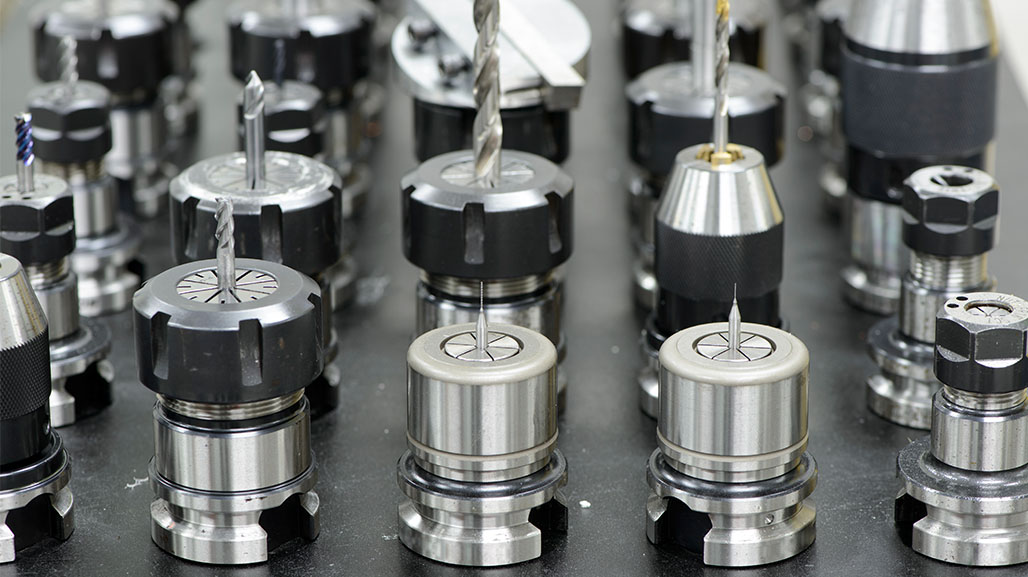
Collets Explained: A Guide to Types, Applications and Proper Selection
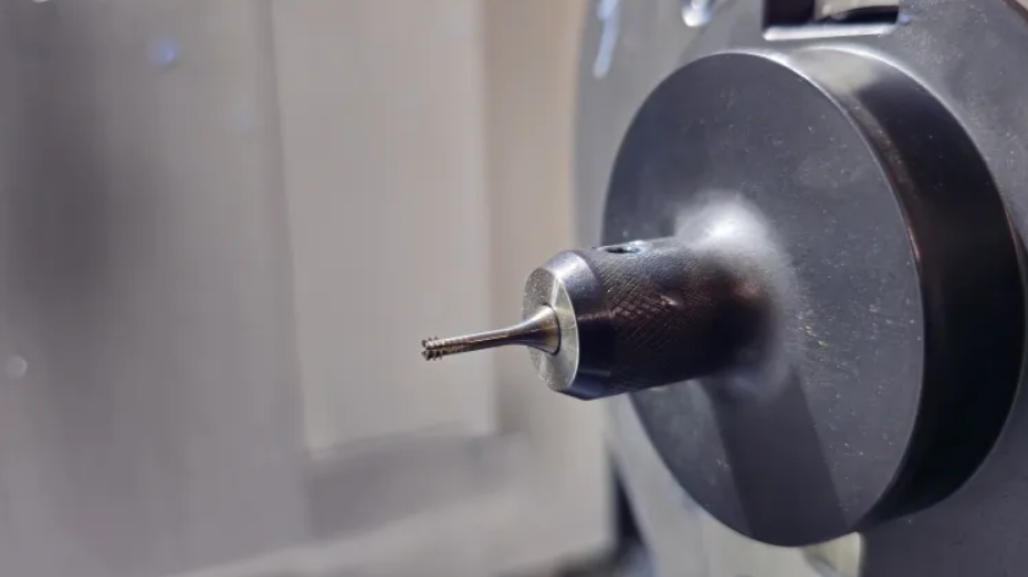
Zero Scrap and Performance Upgrade
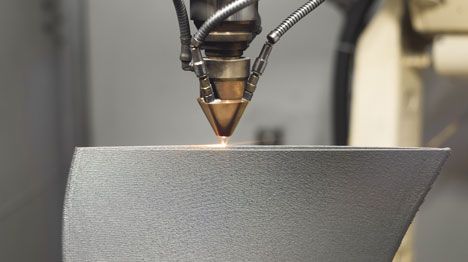
The Latest Tools and Techniques in Metal 3D Printing
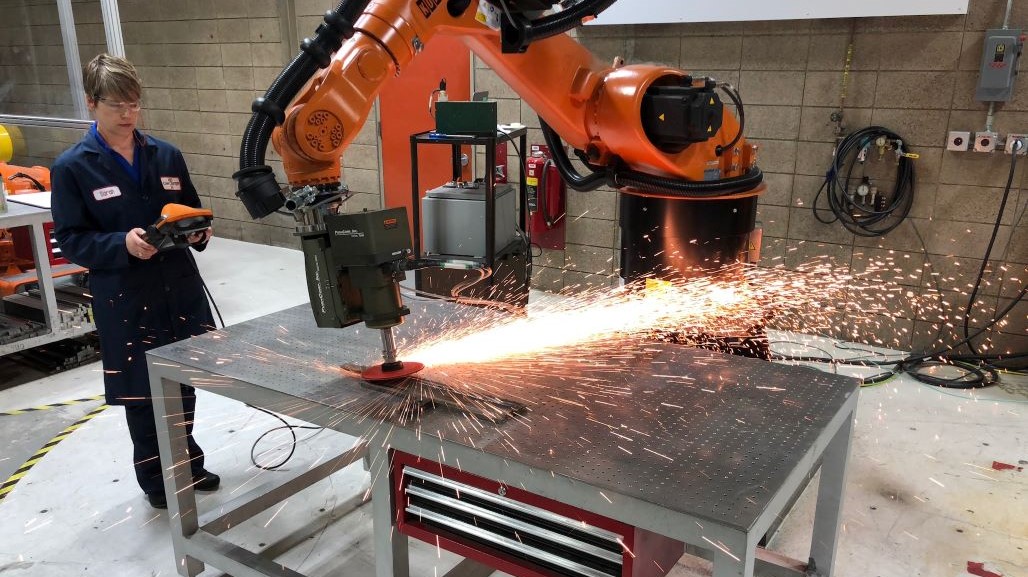
HOW TO Put Innovation to Work for You
